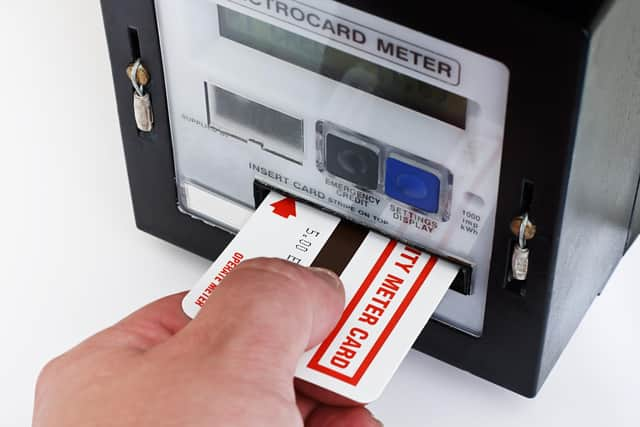Here's how to get out of a prepayment meter contract - Martyn James
↵
Regulator Ofgem is going to be investigating this situation I’m pleased to say, along with other major concerns that the energy firms are penalising vulnerable people who they have a regulatory obligation to protect.
So what’s the problem with prepayment meters? Here’s my guide.


What is a prepayment meter?
Advertisement
Hide AdAdvertisement
Hide AdWith a prepayment meter, you pay for gas and/or electricity in advance, usually through a USB style ‘key’ or a card. You top up the key or card with credit at a paypoint and insert it in to the meter to ‘load’ it with the credit.
What are the main problems?
The main problem with prepayment is when you run out of credit, your supply cuts out. You will usually have a small amount of emergency credit to get you through a short timeframe, but when money is tight, people tend to use this emergency credit regularly instead.
But inconvenience is the other major issue with prepayment meters, as you have to load up your card or key with credit. PayPoint and Payzone outlets are available at thousands of places around the UK, but if your local shop is closed then things can spiral out of control quickly. I’ve also heard from lots of readers who have problems with cards or keys that aren’t loading the credit too.
If you are out of credit, things get complicated. You’ll need to contact the energy provider to see if they can give you temporary credit, which they can upload to the meter remotely. However, now you are in debt, you’ll have to pay some of that debt back every time you top up the meter. So if you have the same amount of money coming in each week or month, you’ll have less to spend in real terms on energy because of reducing that debt.
What happens if I keep running out of credit?
If you are continually in debt then the energy firm’s debt management procedures should kick in. If you are classified as vulnerable, then they should have identified this – but as recent news reports have shown, the system does fail far too often.
Citizens Advice have a great guide for people on prepayment meters. Just type ‘prepayment meter help’ and Citizens Advice in to a search drive.
It was reported earlier this month that 3.2 million people were effectively cut off (albeit temporarily) due to running out of energy credit last year.
How do I ditch a prepayment meter?
The good news is you can switch from a prepayment to a standard meter for free. The bad news is there’s sometimes a backlog of requests, available meters and engineers to do the work. The push to get the nation on to smart meters may have been scaled back but it is still under way, which has contributed to the wait to get the meter changed.
What help is there if you are struggling?
Advertisement
Hide AdAdvertisement
Hide AdThere are a complicated series of benefits, grants and other support available for people who are older, vulnerable or in financial difficulties. Again, if you type ‘financial difficulties' and ‘Ofgem’ in to a search drive you’ll get the full list of help and support.
If you are in financial difficulties Ofgem says that you can ask for the following:
A review of your payments and debt repaymentsPayment breaks or reductionsMore time to payAccess to hardship fundsAdvice on how to use less energy The option to go on the Priority Services Register – a free support service for a wide range of people struggling or who need support:
Martyn James is a leading consumer rights campaigner, TV and radio broadcaster and journalist.
Comments
Want to join the conversation? Please or to comment on this article.